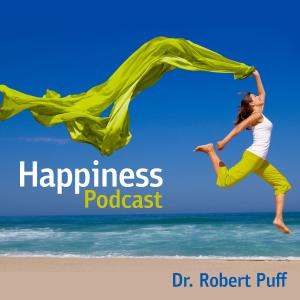Listening to the Music of Life
As humans, we have been given a wonderful gift, and that is the ability to suspend our fears, concerns, and worries and really focus on what we love.
NEWPORT BEACH, CALIFORNIA, USA, October 9, 2020 /EINPresswire.com/ -- Imagine it’s your birthday, and your friends and family pool their money to get you the best gift you can imagine: tickets for fabulous seats to see your favorite musical act. You get to the venue, you find your place up front, and then you settle in to experience every aspect of the music you love.You’ve followed the performers for years, and you know every song. The acoustics are perfect, and you’re accompanied by the kind of friend who enjoys listening wordlessly so that you both can give the performance your undivided attention.
It’s possible that something will distract you for a moment or two. Maybe you’ll need to go to the bathroom or shift your balance in your seat, or you might get hungry as the night moves along. But for most of the performance, you’re having a wonderful time. In no way do you wish for it to finish; in fact, you would not hurry a single note.
Because you’re so engaged, the inevitable small annoyances don’t bother you much. Instead, you enjoy the entire concert, and you’re fully present for it throughout.
What if you got to the venue and something terrible had just happened to you? You’d been broken up with, say, or you learned of a dire financial problem. Maybe you got a bad diagnosis that signals possible suffering on the horizon. Even while facing the prospect of extreme difficulty in your life, you are so thrilled to see your favorite group that for a couple of hours, you are able to put all of that behind you.
As humans, we have been given a wonderful gift, and that is the ability to suspend our fears, concerns, and worries and really focus on what we love. In the example of the concert, we know that when the music ends we may go back to our fears and worries, but while it’s playing, there is nothing we can do about them, so we might as well just give in.
How do we do this? How do we suspend our worries and completely immerse ourselves in the music? The answer is that at the time, we’re 100 percent present with the music, and we allow everything else to fade from view. And why wouldn’t we? There’s little we can do from our auditorium seat, and a lot of effort and positive energy went into getting us where we are.
Sadly, for many people, when the concert is over, their worries and fears come rushing back at them. For these people, their mental chatter becomes impossible to ignore, and they tune out the music of life.
Life always has its music, and we don’t need to be front-row center at a concert to hear it. Throughout our lives, no matter what else is going on, a melody is present, but often, we are so focused on the present moment that we fail to hear its strains. The noise of our worry drowns out all the other things we might otherwise hear and enjoy.
So why do we stop listening to the music of life? What happens to block it from our consciousness?
Despite my concert analogy, life’s music can be subtle. It may not be super loud and totally captivating, aside from its peak moments. Often instead, it’s a quiet whisper, but it’s always there, always speaking to us, always drawing us in. It’s just that our thoughts get louder and louder, and only during an extremely loud performance of life can we stop listening to our thoughts.
One thing we can try to do is focus in on the music of our lives and let our negative thinking fade into the background. Life is always speaking to us — it is! We become beautiful observers of life because life is always playing its music for us, and the music is beautiful.
I really love classical music. Sometimes it’s very loud, insistent, and intense — but other times, it’s just a small whisper. The loudness or softness of music is expressed in notation as dynamics, and these can range from pianissimissimo, written as three small Ps and meaning very, very soft (a mere whisper), to fortissimissimo, expressed as three small Fs and meaning very, very loud — thunderous! Or the music may be merely loud, forte, or soft, piano.
Life is like that. The real extremes can be rare; generally, life’s lovely melody is playing below the surface, and it is so beautiful — but we have to really listen to hear it. That can take true focus, and so often we become distracted from it. It’s like going to a concert and having someone sit behind us, kicking our chair or talking nonstop in our ear. “You should think of this!” the voice says. “Stop listening to the music! Deal with my worries!”
If we want to do well in life, it’s important that we keep listening to the music. Yes, we’ll have to go to the bathroom; we’ll have to eat something. But through it all, we need to keep listening to the music.
Sometimes we see a performance, and then afterwards, maybe the next day, we read a review. Someone else attended and paid close attention before offering a breakdown of what they heard and whether it was good or bad. What a mistake it would be to go to a live performance and engage in commentary the whole way through! Our commentary can keep us from truly hearing; it keeps us outside of the full experience. We would never put up with a fellow concert-goer screaming in our ears about what’s right or wrong, or what we should worry about — our future or past anxieties or desires. That’s ridiculous concert behavior. It robs us of a treasured experience, and it’s not fair to the musicians.
Whatever is being performed in front of us, we need to focus on it — that is, we need to really listen to life and soak in its beautiful aspects. The truth is that there is always something beautiful to be with. Life has that ability. We can be in a hospital room to deal with a life-or-death medical situation, but still we are able to hear birds singing outside. Life is always playing its music.
The key to listening is to learn to stop being distracted by our thoughts and really work on our attention. We need to constantly practice soaking up and enjoying the music of life, even when we have become accustomed to not listening.
Developing listening skills takes focused attention, but I’m here to tell you that it isn’t difficult. We just need to listen with our senses.
How do we listen with our senses? We pay exquisite attention to the information that they are processing. If we are eating, we take in the aroma of the food, and we feel its texture, and we taste it on every part of our tongue — sweet, sour, salty, bitter. We pay attention to the total experience and everything that makes it so very much worth savoring.
And it doesn’t end with our dining experience. We can hear the music of life at other times, too. When we talk to someone, we can really listen to what they’re saying. We can watch their facial expressions and their movements; we can see the emotion in their eyes, or we can gauge the tone of their voice. We all convey so much more than what our words say, and by immersing ourselves into the conversation, we can tap into the beauty and meaning that are always there for us.
When we are working, we can discover life’s music by using full concentration for the task at hand. Whether we are doing high-level administrative tasks or we are collating and stapling documents, there is music, just below the surface. Sometimes when I am engaged in a seemingly mindless chore, like signing a stack of letters, I let myself get into the rhythm of the job, and at these times, it is like I am not just hearing, but contributing, to life’s music.
Likewise, when we take a shower, we can do more than stand there and think of our day’s things-to-do list. Instead, we can focus wholly on the shower. We can feel as we lather up our skin, or we can feel the water going onto our head and our bodies and enjoy the sensation of the cleansing suds. Really paying attention to a rich physical sensation like this one can awaken us to the constant melody of life.
And there’s even more we can do. While lying in bed, we can feel the sheets and enjoy even haring our breath as it makes its faint noise. When we walk, we can look at the things all around us as we feel the pavement beneath our shoes.
We can become magnificent listeners to life, with enough practice — and let’s face it, this is something we were born to do, so the skill is there, waiting for us to employ it. We can tap into the music, and when we do find ourselves distracted from it, we can use kindness to bring us right back. It is as simple as saying, “OK, I’m distracted again; I am going to start listening again.” This may work for a few minutes, or it may wear out after a few seconds, but that is when we again employ kindness as well tell ourselves, “Now I’m going to listen again.” Soon, we will find that we have to redirect ourselves less and less, and we hear the music more and more.
Over the years, haven’t we gotten skilled at being distracted from life’s music as we focus on life’s obligations, chores, emotions, and concerns? This is only natural — but it’s not inevitable, and it doesn’t have to be permanent. Gently guiding ourselves again to the art of listening is all we need to tap into that sweet music we’ve been considering. It just takes practice to redevelop those skills. In the early going, it may feel like effort.
I remember when I first started trying to access the music of my life. I would go for walks and really try to see what was around me. It was an illuminating activity, but I found it hard to stay fully present. When I would see something and realize I’d been too distracted to fully take it in, I would step back and really look at that plant, that bird — whatever it was I’d passed by without fully embracing. Through the practice of quieting my mind, meditating, and paying attention, I did get better at paying attention to the music of life.
Quite simply, it’s a skill, and one that develops with focused effort. If you were a baseball player working on your fastball, you would understand the need for repetitive action and attention to get it exactly right. If you were a rock guitarist trying to master a riff, it would be the same situation: You would not begrudge yourself multiple attempts, and you would find degrees of satisfaction each time you got a little closer to your goal. So why would you not regard yourself with kindness as you try to master this skill? You’ve been walking around with a secret symphony playing, just for you. Only you can hear it, and even then, you need to work at it if you are to perceive it at all.
If we see the wisdom of listening to the music of life, we need to acknowledge its presence and give space to it. We must stop being in our head so much, and in doing so, we’ll find that life truly does become beautiful.
In summary, listening to the music of life is work, and it requires practice. Life is always paying music, but we have to listen, and we listen by being present. We can do this. We just need to realize and engage with the music of life that is always playing, but when we do this, we’ll discover that the symphony inside of us is magnificent, if only we can find it in us to stop and listen.
Hearing the music
Close your eyes and listen. You can finish reading this in a few moments. For now, take a full minute and just tune in, and be prepared to report back on what you hear.
########
If you would like to learn more, the latest episode of the Happiness Podcast, hosted and created by Dr. Robert Puff, is now available. It is titled, "#294 Happiness – Listening to the Music of Life" and can be listened to at:
https://www.happinesspodcast.org/294-happiness-listening-to-the-music-of-life/
Links to listen to the Happiness Podcast:
http://smarturl.it/HappinessPodcast
About the Happiness Podcast hosted by Dr. Robert Puff:
Do you ever wonder what it takes to lead a peaceful, happy life? Are you curious about the specific steps involved in a self-actualized, limitless life? Are you struggling with anxiety or depression? Or are you just plain tired and want some help? We explore all these concerns and more every week on the Happiness Podcast, which has been downloaded over 8 million times since its inception. Happiness does not happen by chance, but because we take specific actions in our lives to create it. Dr. Robert Puff, Ph.D., author of 13 books, TV show host, Psychology Today blogger, and corporate trainer, has been studying the actions it takes to reach the highest levels of human achievement for decades, and he wants to share what he knows with you.
Dr. Robert Puff, Ph.D.
Happiness Podcast
+1 714-337-4889
email us here
Visit us on social media:
Facebook
Twitter
LinkedIn
Foundations of Happiness
Legal Disclaimer:
EIN Presswire provides this news content "as is" without warranty of any kind. We do not accept any responsibility or liability for the accuracy, content, images, videos, licenses, completeness, legality, or reliability of the information contained in this article. If you have any complaints or copyright issues related to this article, kindly contact the author above.



